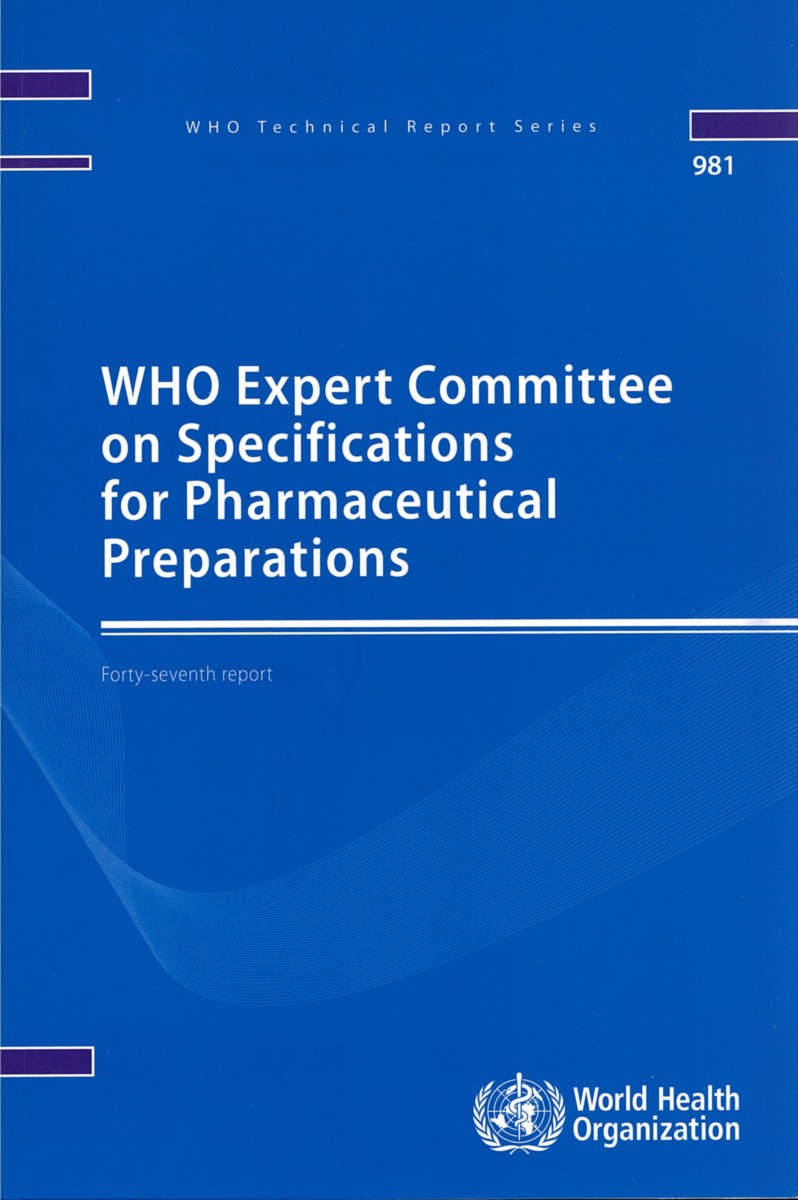WHO Expert Committee on Specifications on Pharmaceutical Preparations
47th Report
- Publisher
World Health Organization - Published
5th November 2013 - ISBN 9789241209816
- Language English
- Size 6.75" x 9.25"
WHO's international guidelines, written and physical standards developed under the aegis of this Expert Committee for more than 60 years are designed to serve all Member States, international organizations, United Nations agencies, regional and interregional harmonization efforts, and underpin important initiatives, including the prequalification of medicines, the Roll Back Malaria Programme, Stop TB, essential medicines and medicines for children.
The Forty-seventh WHO Expert Committee on Specifications for Pharmaceutical Preparations adopted 26 new monographs and general texts for inclusion in The International Pharmacopoeia,/I>. The specifications under development are internationally applicable test methodologies for anti-infective, antimalarial, antituberculosis, contraceptives and antiretroviral medicines, as well as medicines for children.
In addition, the following four written standards were adopted in the area of quality assurance and are now available for implementation :
* Release procedure for International Chemical Reference Substances (update);
* WHO guideline on quality risk management (new)
* WHO guideline on variations to a prequalified product (update)
* Collaborative procedure between the WHO Prequalification of Medicines Programme and national medicines regulatory authorities in the assessment and accelerated national registration of WHO-prequalified pharmaceutical products (new).
World Health Organization
World Health Organization is a Specialized Agency of the United Nations, charged to act as the world's directing and coordinating authority on questions of human health. It is responsible for providing leadership on global health matters, shaping the health research agenda, setting norms and standards, articulating evidence-based policy options, providing technical support to countries, and monitoring and assessing health trends.


